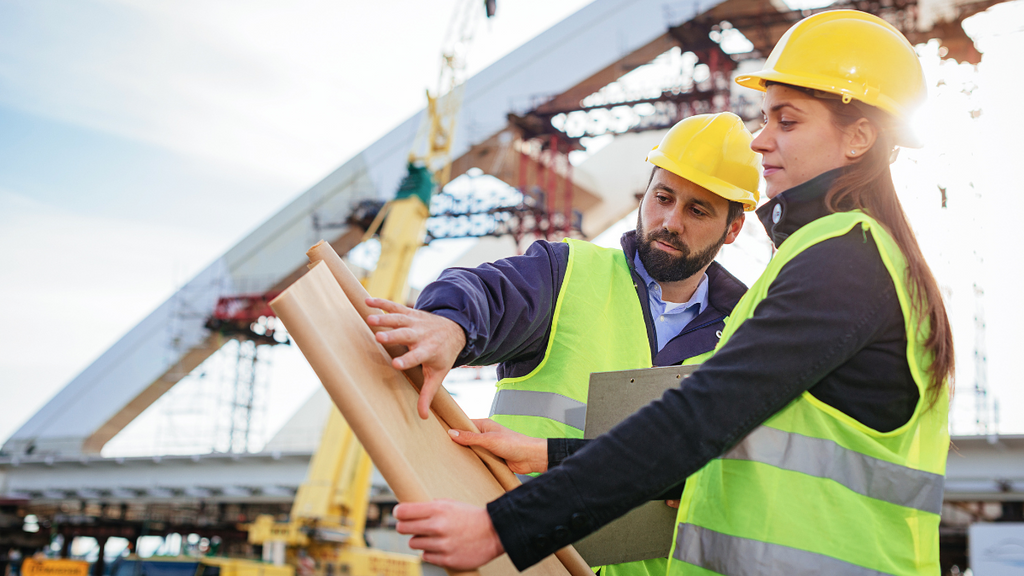Some Of Geotheta
Some Of Geotheta
Blog Article
10 Easy Facts About Geotheta Shown
Table of ContentsThe Single Strategy To Use For GeothetaGetting The Geotheta To WorkThe Only Guide for GeothetaOur Geotheta DiariesThe 5-Minute Rule for Geotheta

They conduct website examinations, collect samples, do laboratory examinations, and assess information to review the suitability of the ground for building and construction jobs - Consulting Engineer. Based on their findings, geotechnical engineers offer referrals for foundation design, slope stability, preserving frameworks, and mitigation of geotechnical threats. They work together with other experts, such as engineers, architectural designers, and building and construction groups, to ensure that geotechnical considerations are integrated right into the overall project layout and implementation
By assessing the habits and buildings of soil and rock, they can determine possible geotechnical risks such as landslides, soil settlement, or slope instability. Their proficiency helps protect against failures or accidents that could threaten lives and residential or commercial property. Here are some comprehensive duties and obligations of a geotechnical engineer: Site Examination: Geotechnical designers conduct site investigations to gather information on subsurface problems.
They translate the information to understand the residential properties and habits of the soil and rock, including their toughness, leaks in the structure, compaction features, and groundwater problems. Geotechnical Analysis and Design: Geotechnical engineers analyze the information gathered throughout website investigations to analyze the security and viability of the site for building jobs. They perform geotechnical computations and modeling to assess aspects such as birthing capacity, settlement, slope security, side planet stress, and groundwater flow.
The Best Guide To Geotheta
Foundation Design: Geotechnical designers play an important function in making foundations that can securely support the intended structure. They assess the dirt conditions and lots demands to identify the proper foundation type, such as superficial foundations (e.g., grounds), deep structures (e.g (https://yoomark.com/content/httpsgeothetacom)., heaps), or specialized techniques like dirt improvement. They take into consideration variables such as settlement limits, birthing capability, and soil-structure interaction to develop optimal foundation styles
They review construction strategies, screen website tasks, and perform field assessments to confirm that the style referrals are followed. If unanticipated geotechnical concerns occur, they examine the situation and give referrals for remediation or adjustments to the style. Threat Evaluation and Reduction: Geotechnical designers analyze geotechnical risks and risks connected with the task website, such as landslides, liquefaction, or soil disintegration.

Collaboration and Communication: Geotechnical engineers work closely with other professionals included in a task, such as engineers, structural engineers, and building teams. Effective communication and cooperation are necessary to incorporate geotechnical factors to consider right into the total task layout and building and construction process. Geotechnical designers provide technical expertise, solution queries, and guarantee that geotechnical demands are fulfilled.
The Basic Principles Of Geotheta
Right here are some kinds of geotechnical designers: Structure Designer: Foundation designers concentrate on developing and analyzing structures for frameworks. They evaluate the dirt conditions, tons demands, and site qualities to identify one of the most proper structure type and style, such as superficial foundations, deep foundations, or specialized strategies like stack structures.
They review the variables influencing slope stability, such as soil residential properties, groundwater conditions, and slope geometry, and develop approaches to avoid incline failings and alleviate threats. Quake Designer: Earthquake engineers specialize in analyzing and creating structures to stand up to seismic pressures. They assess the seismic danger of a site, assess dirt liquefaction potential, and develop seismic style requirements to ensure the safety and strength of frameworks throughout quakes.
They perform area testing, gather examples, and evaluate the gathered data to identify the soil residential properties, geologic formations, and groundwater problems at a website. Geotechnical Instrumentation Designer: Geotechnical instrumentation engineers concentrate on surveillance and determining the habits of soil, rock, and frameworks. They mount and maintain instrumentation systems that monitor elements such as dirt negotiation, groundwater levels, slope movements, and structural displacements to analyze efficiency and supply early warnings of potential problems.
Not known Facts About Geotheta
They conduct examinations such as triaxial examinations, loan consolidation examinations, straight shear examinations, and leaks in the structure tests to gather information for geotechnical analysis and style. Geosynthetics Engineer: Geosynthetics engineers specialize in the layout and application of geosynthetic products, such as geotextiles, geogrids, and geomembranes. They make use of these products to enhance soil security, strengthen inclines, offer drain check solutions, and control disintegration.
They tend to be investigative people, which suggests they're intellectual, reflective, and inquisitive. They are interested, systematic, reasonable, logical, and rational. Some of them are additionally social, implying they're kind, generous, cooperative, individual, caring, valuable, understanding, sensible, and friendly - Geo Tech Engineer.
In the office setting, geotechnical designers make use of specialized software application devices to perform calculations, develop layouts, and analyze information. They prepare reports, review task requirements, communicate with clients and staff member, and coordinate job activities. The office setting supplies a helpful atmosphere for research study, evaluation, and cooperation with various other experts associated with the task.
The Facts About Geotheta Revealed
They regularly see job sites to perform site examinations, analyze geotechnical conditions, and gather information for evaluation. These sees involve taking a trip to various areas, often in remote or tough terrains. Geotechnical engineers might execute dirt sampling, conduct tests, and monitor construction tasks to ensure that the geotechnical aspects of the job are being applied appropriately.
Geotechnical designers likewise function in specialized geotechnical research laboratories. Geotechnical lab engineers work thoroughly in these settings, managing testing devices, running instruments, and recording data.
Report this page